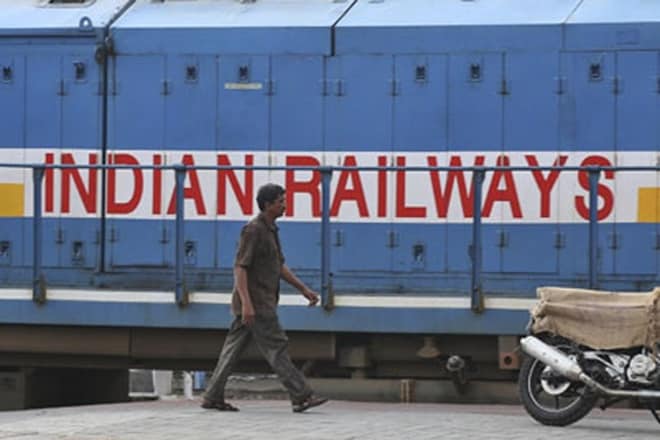Indian Railways, whose capex budget has multiplied in recent years, has just got a slap on the wrist from a government panel for not taking its permission before floating global tenders to procure 4.87 lakh tonnes of rails, hamstringing the transporter in its efforts to cut expansion costs and expedite modernisation. The move by the standing committee on Domestically Manufactured Iron and Steel Policy (DMI&SP), 2017, at the steel ministry is despite the continuing gap between the railway’s rising demand for rails and domestic availability of these products (see table). The DMI&SP makes it obligatory for government projects with iron and steel cost of Rs 50 crore and above to purchase steel from only domestic manufacturers — for the record, a violation is tolerated if the specific grades of steel required for the projects are not locally available or nor produced in the required quantities. Earlier this month, the standing committee gave the Indian Railways (IR) an ex post facto exemption from DMI&SP compliance for its global tender for rails floated on October 18, but sternly told the transporter that it is a “one-time exception, (which is) not to be used as precedent for rails or any other (steel) products covered under DMI&SP”. “It is advised that in future, the ministry of railways should obtain prior waiver under DMI&SP policy before floating any global tender for procurement of rails,” it added.
As if that wasn’t enough, principal secretary to the Prime Minister, Nripendra Misra, recently wrote to Ramesh Abhishek, secretary, department of industrial policy and promotion, expressing concern over the “very disturbing” situation where many government departments are not adhering to the Public Procurement (Preference to Make in India) Order, 2017, which also is meant to provide an assured market for domestic manufacturers of various products. “The requirement of significant global experience in terms of trade performance may eliminate many domestic manufacturers. Any tender, which is not sensitive to Make in India message deserves scrutiny,” he wrote.
Also watch:
State-run SAIL has traditionally been the sole local supplier of rails to IR. Even though Jindal Steel and Power (JSPL) has been supplying rail to Delhi Metro Rail Corporation and Dedicated Freight Corporation of India for many years, IR is yet to certify the technical quality of its products. The steel ministry’s standing committee was recently informed by the railways that an expert committee of IR’s Research, Designs and Standards Organisation was carrying out the technical assessment of JSPL’s rail manufacturing capacity. On their part, the domestic manufacturers argue that they can meet IR’s rail requirements. As per the information provided by IR to the standing committee, the transporter requires 14.59 lakh tonne of rail in 2017-18 and 14.78 lakh tonne in 2018-19. According to SAIL, it can supply 15 lakh tonne in 2018-19, in addition to 5.55 lakh tonne supplied till November this year and another 9.5 lakh tonne to be provided in the current fiscal. JSPL claims that it can supply up to 6 lakh tonne a year to IR.

In a recent letter to steel secretary Aruna Sharma, Railway Board’s executive director (track) BP Awasthi, however, wrote, “It was brought out that despite long experience of SAIL, it is still having rejection of the order of 15%, which has also confirmed by CMD/SAIL who was present in the (standing committee) meeting. Thus, keeping in view the safety implications involved, it is necessary that the vendor has to be an established manufacturer with proven performance of supply of rails to passenger carrying railway system.”


